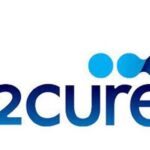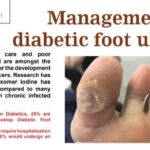There is a Need for a National-Level Prevalence Survey to Estimate Iodine Content in all Indian Foods in all the States: Says ICMR Official
July 5, 2021: The 30thNational Coalition for Sustained Optimal Iodine Intake (NCSOII) hosted by the Association for Indian Coalition for Control of Iodine Deficiency Disorders (ICCIDD) has been attended by various National, International and State level public and private stakeholders including Government agencies, Salt industry, Development agencies and Civil societies etc.
Dr Chandrakant S. Pandav, President – ICCIDD, hailed the Universal Salt Iodisation (USI) program in India as the most successful public health story, he revealed that “India has the world’s best possible information on all aspects related to IDD in terms of age, gender, urinary iodine and iodine content by titration.”
Speaking on the current status of the National Iodine Deficiency Disorder Control Program (NIDDCP) and the success of USI, Dr Pradeep Saxena, Sr. Chief Medical Officer (SAG), Nutrition & IDD Cell, Directorate General of Health Services (Dte.GHS), Ministry of Health & Family Welfare (MoHFW) had thrown light on the path-breaking “Kangra Valley Study” which lead to the launch of the National Goitre Control Program (NGCP) to bring down the prevalence of IDDs. He said that “the salt produced in India in 2019-20 and 2020-21 is not much affected by the pandemic and is adequate to meet the needs of the country”. Stating the example of Tamil Nadu State, which lagged in the USI goals, Dr Saxena said that “taking the state govt on board for implementation of NIDDCP has improved the situation”.
On behalf of the Salt Commissioners’ Office (SCO), Ms Mohita, Asst. Salt Commissioner, Jaipur & Central Public Information Officer (CPIO) spoke about the constraints faced by the SCO and raised concerns regarding the impending decision of the Govt. of India to shut down the salt commissioner’s office and it’s far-reaching implications on achieving the goal of 100 per cent coverage of USI. Dr Saxena and Dr Pandav assured to take up this issue with the Department of Salt, Ministry of Commerce and Industry.
Dr Werner Shultink, Executive Director of Iodine Global Network (IGN) said that the USI program of India is hugely successful and it is important for the whole world as India is one of the largest salt exporters. He emphasized that “the USI framework stays in place and continues to be implemented”.
Dr Rajan Shankar, Senior Advisor, Tata Trusts spoke on Issues linked to Food and Nutrition Security. He said that “the Job is not done yet and there is a need to continue the program to achieve 100% coverage of adequately iodized salt. Keeping in mind the modern dietary patterns of average Indian households there is a need to make sure the processed food industry also uses iodized salt”.
Speaking on the estimation of iodine content in Indian foods, Dr A. Laxmaiah, Scientist G & Head, Public Health Nutrition, Indian Council of Medical Research (ICMR) said that “there is a need for a national level prevalence survey to estimate iodine content in all Indian foods in all the states”.
The growing prevalence of hypertension cases in India has drawn the attention of experts worldwide. Throwing light on the salt reduction strategies and hypertension, Dr Bhawna Sharma, Country Lead, Resolve to Save Lives, said that “reducing sodium intake through salt can reduce the chances of hypertension by 30 %. An average Indian adult consumes about 11 gm of salt per day whereas WHO recommends 5 gm per day. There is a need for the implementation of low sodium salt interventions at the population scale that include dietary habits, taste, functionality, availability, cost and safety”.
Raising the issue of narrow range (15 to 30 ppm) of permissible Iodine content in iodized salt, Shri Parasmal Nahata from Gujarat Refined Salt Manufacturers Welfare Association said that “this narrow range is practically impossible tomaintain and the regulation needs to be revisited”. Adding to this issue, Shri Michael Motha, from Tamil Nadu Salt Manufacturers Association, said“ these regulations are discouraging the small scale salt producers to take up iodized salt production which would eventually impact the USI Program”.
Shri R.K Mishra from Iodine Namak Aa Apoorti Karta Sangh (INAKS) Bihar said that “the public distribution system of iodized salt has taken a setback due to bureaucracy and this is only hurting the INAKS program that benefits the poor and underprivileged”.
Dr Renuka Jayatissa from Iodine Global Network (Sri Lanka),Dr Faruqueddin Ahmed (Public Health Specialist), Dr Gayatri Singh from UNICEF, Dr Deepti Gulati from Global Alliance for Improved Nutrition (GAIN), Dr Sujeet Ranjan from Coalition for Food & Nutrition Security (CFNS), Mr Ranjan Jha from Nutrition International (NI) and Mr Rakshit Tiwari (Adfactors) also shared their valuable insights in this National Coalition Meeting.













